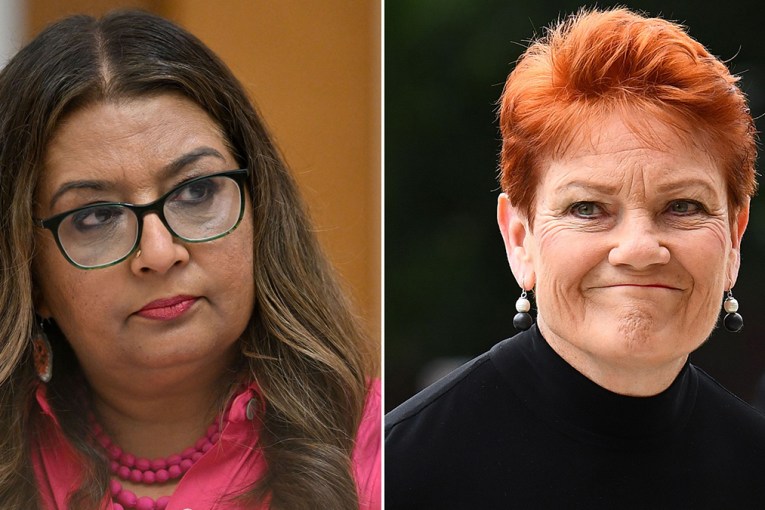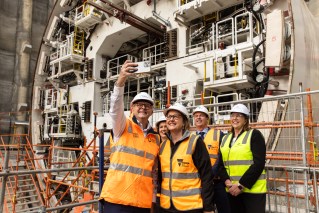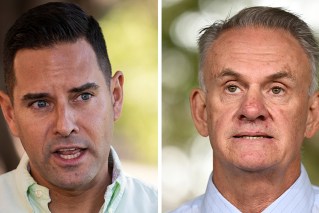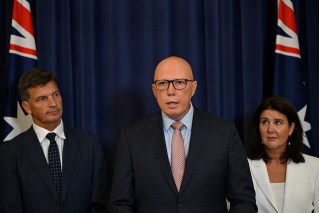Could Labor’s cost-of-living package end stage-three tax cuts?

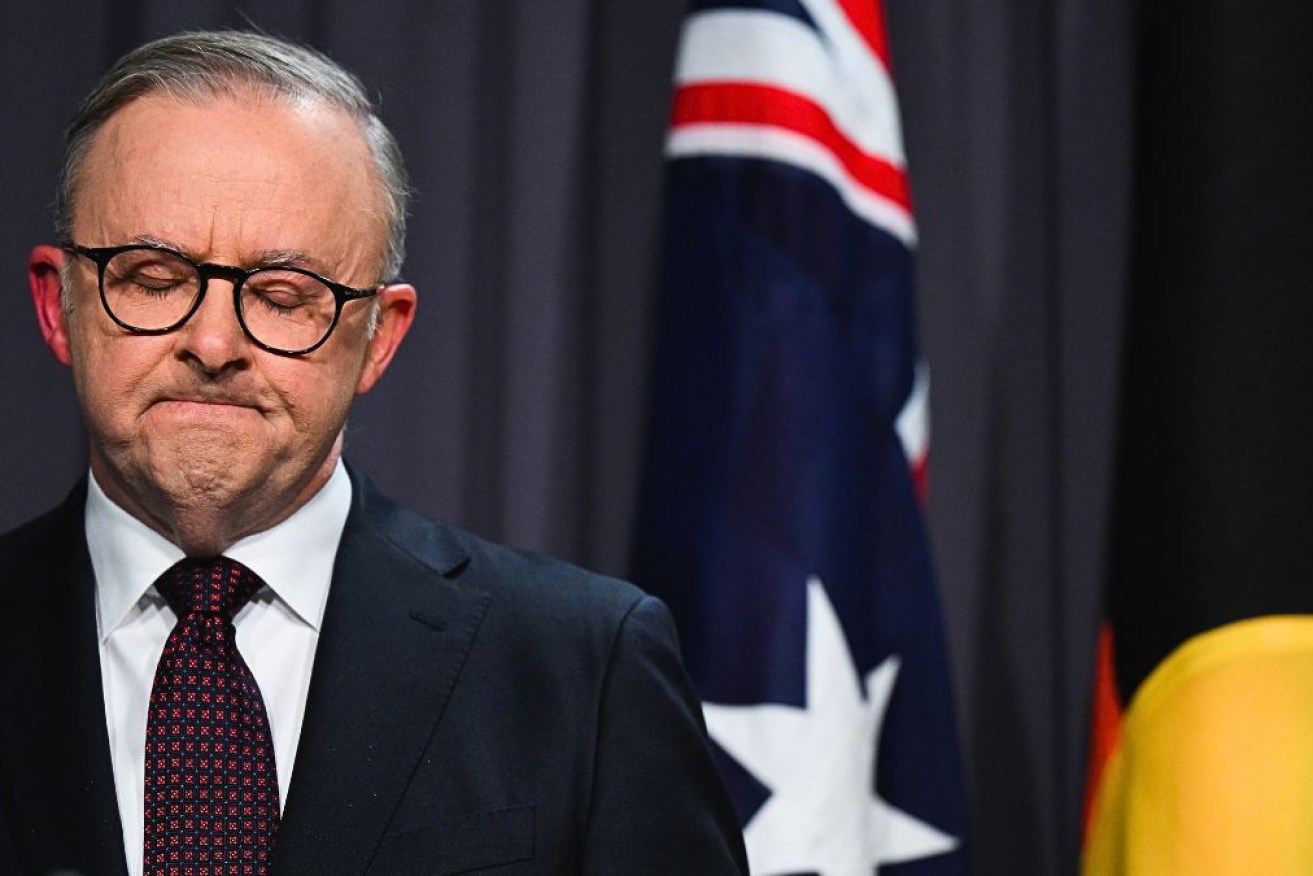
The cost-of-living crisis has weighed the Albanese government down since coming to power in 2022. Photo: AAP
Prime Minister Anthony Albanese has been urged to prioritise boosting wages and implementing tax reforms over throwing money at the cost-of-living crisis, amid reports that Labor may be reconsidering the controversial stage-three tax cuts.
Albanese recalled MPs to Canberra early for a meeting on Wednesday, where the government is expected to fast-track measures to combat household inflation before his National Press Club address on Thursday.
And in another unexpected development, reports emerged on Monday that Labor would consider stage-three tax changes despite repeatedly ruling out such moves since before Albanese won the 2022 election.
The stage-three tax cuts – introduced by the Liberal government in 2018 – will abolish the 37 per cent marginal tax bracket and lower the 32.5 per cent tax rate to 30 per cent.
It will also raise the 45 per cent marginal tax rate, effectively resulting in those earning between $45,000 and $200,000 paying tax at the same rate.
The Opposition has tried to place the blame for high inflation and interest rate increases on Labor’s economic management, and the rhetoric has seemingly resonated with voters. The radio station 2GB reporting that an overhaul of the stage-three tax cuts may be on the way was the latest instalment in that battle.
However, a government spokesman told The New Daily “the government’s position [on stage three] has not changed”.
Other tips for Albanese
Dr John Hawkins, senior lecturer at the Canberra School of Politics, Economics and Society, said people would be less upset if inflation was higher, but their wages were keeping pace.
“Wages aren’t matching inflation, people are hurting and you’ve got tax increases like the Lamington (Low and Middle Income Tax Offset, or LMITO) being removed and the stage-three tax cuts coming up,” he said.
“Low-income earners get nothing from that, medium-income earners don’t get very much and it’s mainly going to people with high incomes.”
The LMITO — a temporary tax cut for anyone earning up to $126,000 was designed to end in 2023 by the former Coalition government.
Keeping pace
John Quiggin, senior fellow in economics at the University of Queensland, said the government has encouraged the framing of the issue as one of cost of living.
“Essentially, all of this is a distraction. The amount of money involved will be too small to make any difference to anything,” he said.
“The framing of things as a cost-of-living crisis is politically convenient.”
He said even the Albanese government coming out in support of a serious increase in wages would be “a fundamental policy change”.
“They could be supporting wage claims in the arbitration commission, for example, beyond supporting the basic wage case,” he said.
“When the Reserve Bank is saying we shouldn’t have wage increases – they should be saying we support not only the tiny growth in real wages we’ve had in the last quarter or so, but some catch-up for real wages.”
Hawkins said the government is aware that the debate around cost of living hurt it politically during the Voice referendum.
“They’ve got a by-election coming up in the sort of seat that the Liberals will be targeting to win in the next election,” he said.
“They want to be seen as addressing the problem and not waiting until the May budget to do it.”
Running out of time
With quarterly results on the Consumer Price Index due on January 31, Quiggin said while the government has a list of cost-of-living measures it touts, some of them are “pretty sketchy claims”.
“Time is running out to start softening people up for changing the statutory tax cuts,” he said.
“There’s always a possibility that they could come out with something substantial, but if so, he’s keeping his cards close to his chest.”
The Albanese government has watched its commanding lead in the polls shrink since it was elected in May 2022, and its next budget in May will come at a crucial time if it hopes to remain in power.
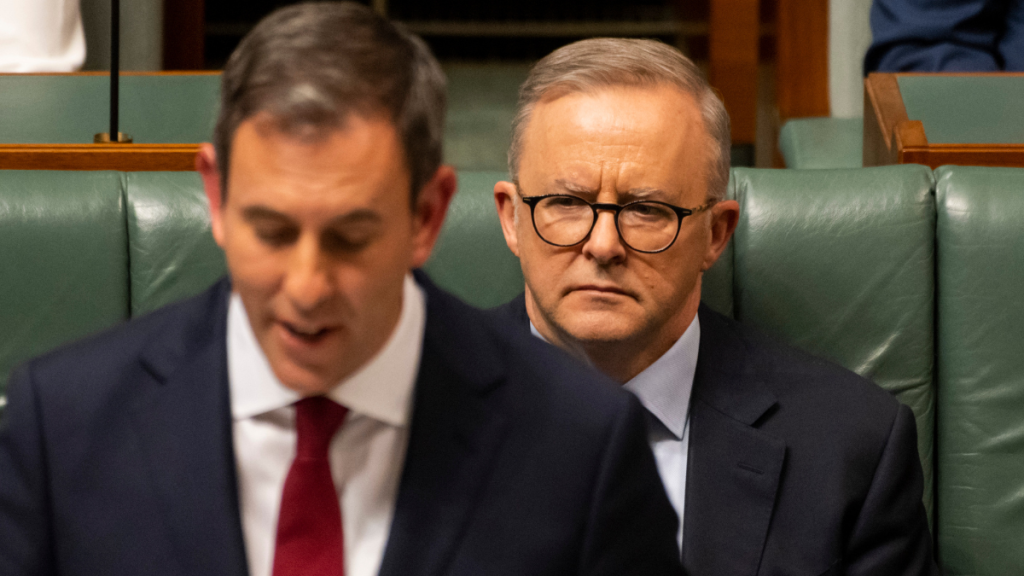
Jim Chalmers will deliver the May budget at a pivotal time for the government. Photo: Getty
Hawkins said it “could be its last” if the government decides to send Australians to the polls early.
“There’s going to be controversy about the stage-three tax cuts and the way they are skewed towards high-income earners, so they need to be able to say yes, but we are also doing this for the low-income earners,” he said.
“There’s always risk that the numbers will [come] in higher than we’re expecting and another interest rate will go live, and that would really create problems for the government.”
